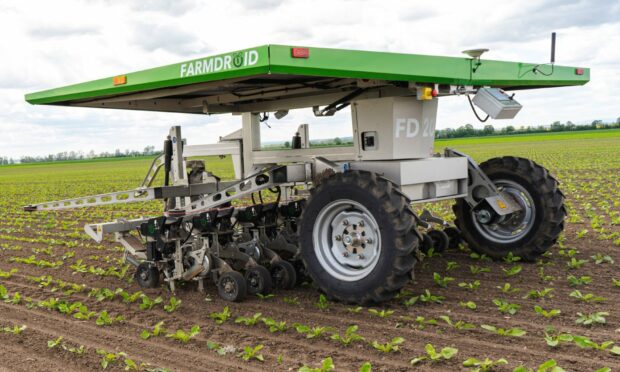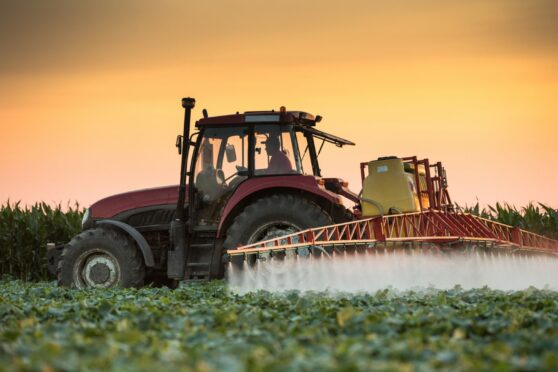A solar-powered, fully autonomous robot which is capable of precision drilling and weeding has been launched on the UK market by machinery distributors, OPICO.
Designed by two Danish farmers, and unveiled at Agritechnica three years ago, sales of the FarmDroid across Northern Europe have already exceeded 250 machines and have been used on crops including beets, onions, beetroot, spinach, kale and rapeseed. One single robot can sow and weed 20 hectares per season.
OPICO managing director James Woolway said he believed robotics would form the backbone of the next major step in the technological development of agriculture.
“FarmDroid has come up with a unique solution that is suited to large and small-scale farming systems,” he said.
“While it’s early days, we’re coming to the UK market with a product that is tried and tested.
“The timing couldn’t be better with rising energy costs, labour issues and environmental factors at the forefront of UK farmers’ minds.”
The six-row robot comes with a price tag of £59,500, with an additional £4,243 required for an RTK base station. but the manufacturers say its attractions include pesticide-free weed control and zero fuel bills.
Unlike similar machines, the FarmDroid doesn’t use banks of high-definition cameras and computers to identify and target weeds, but uses GPS to record exactly where it places each seed, then on each subsequent weeding pass it identifies where the crop plants should be and works around them.
The concept was the brainchild of Jens and Kristian Warming who built the first prototypes with the help of robotics specialists in their farm workshop in central Denmark. Production has now moved to a state-of-the-art manufacturing complex.
OPICO points out that with food retailers looking to be perceived as “green” and carbon audits becoming more and more common, the FarmDroid can help provide a step towards energy self-sufficiency and herbicide-free crop production.
It has a light footprint of just 800kg and organic growers in Europe have reported increases in beet yields of 40-60% over tractor-hoed crops which they say is down to the combination of precise seed placement and intra-row weed control making for uniform crop development.
OPICO suggests grant funding is likely to be available to assist with the purchase of the machine.

